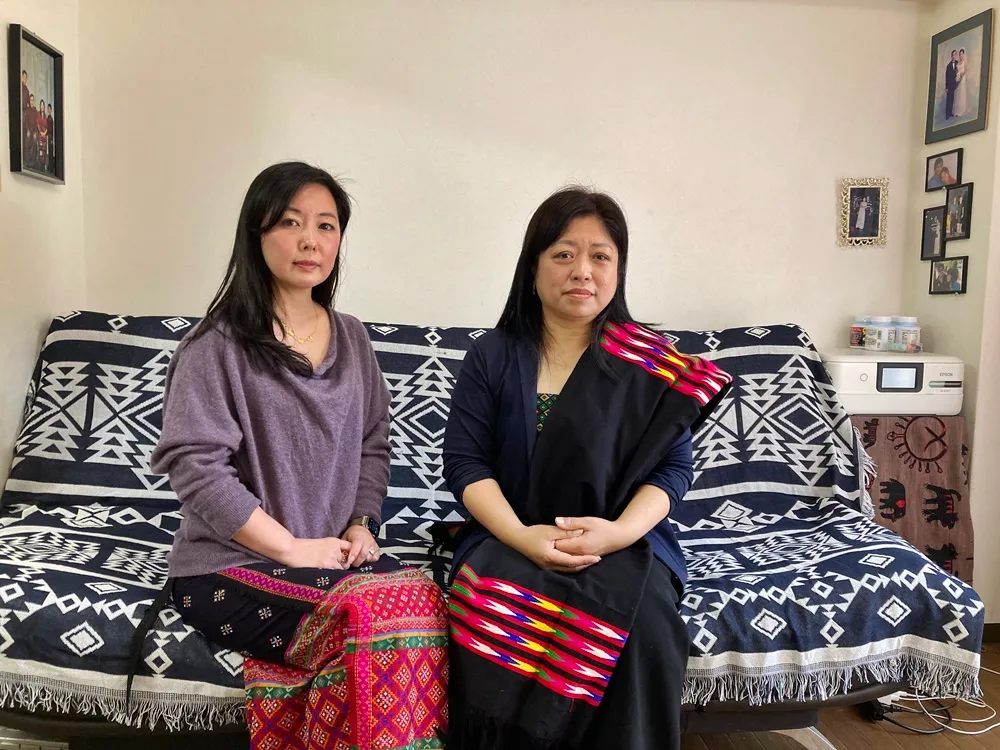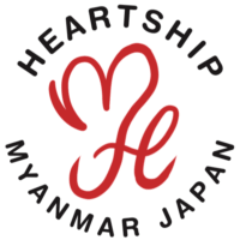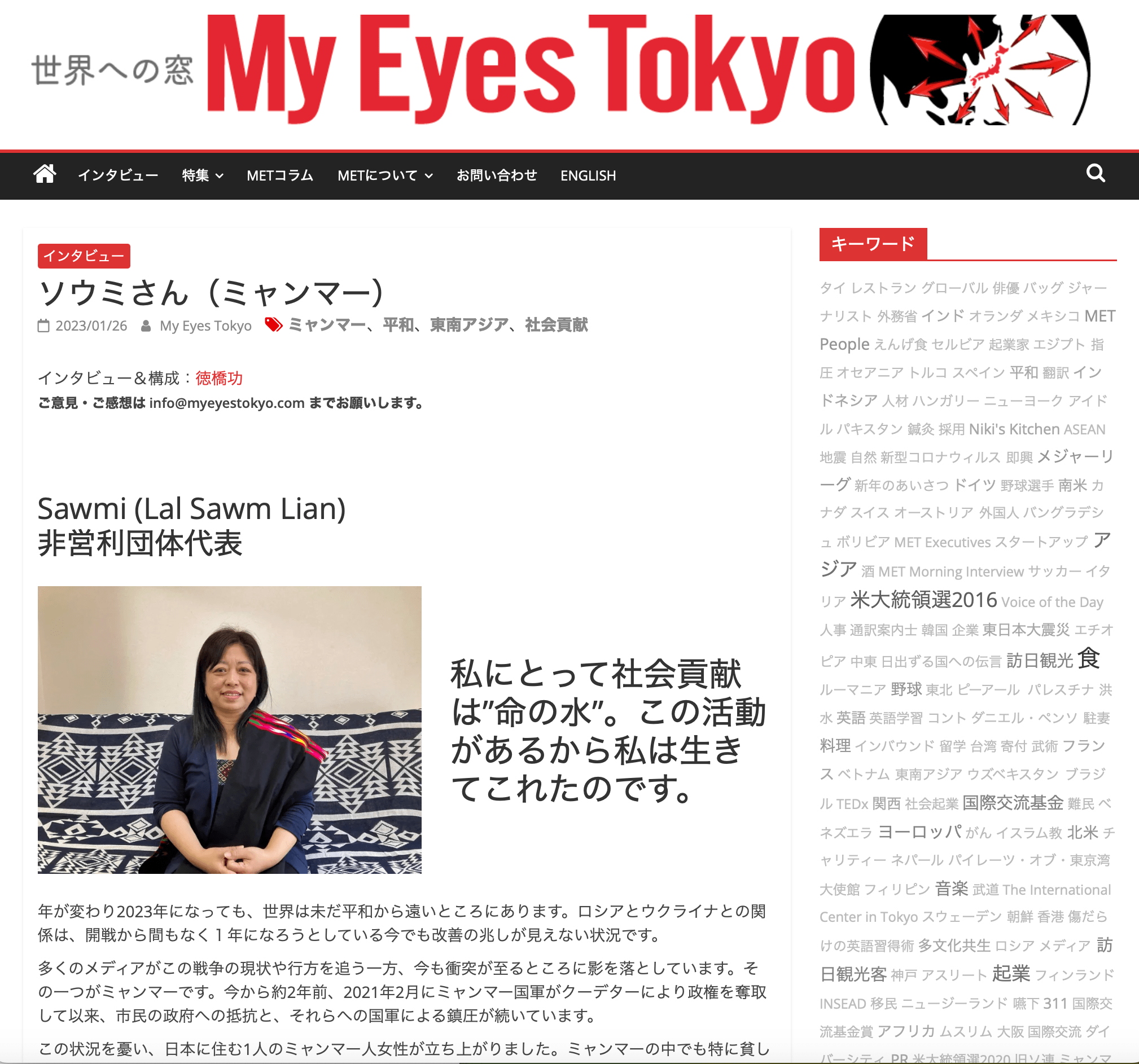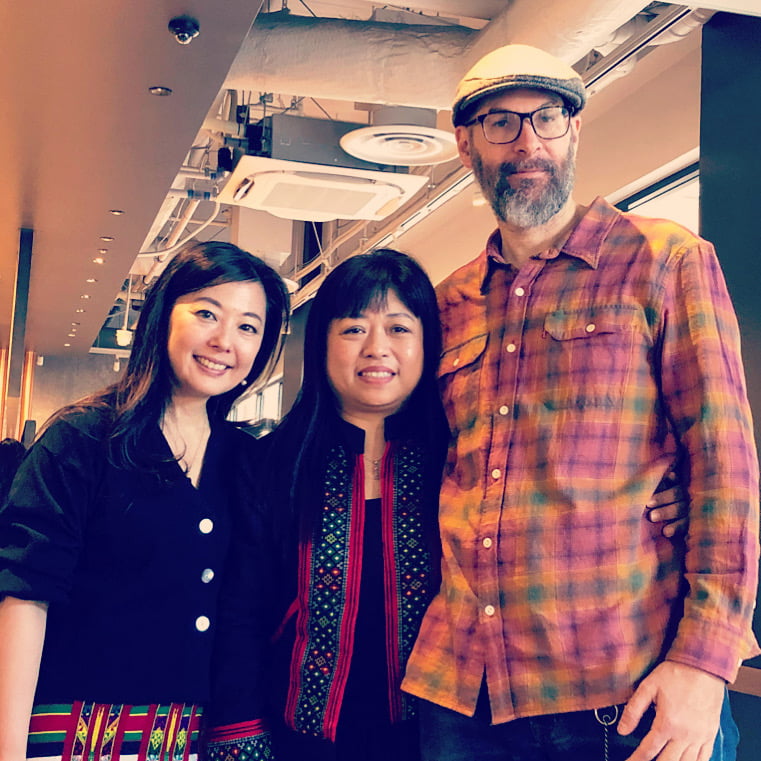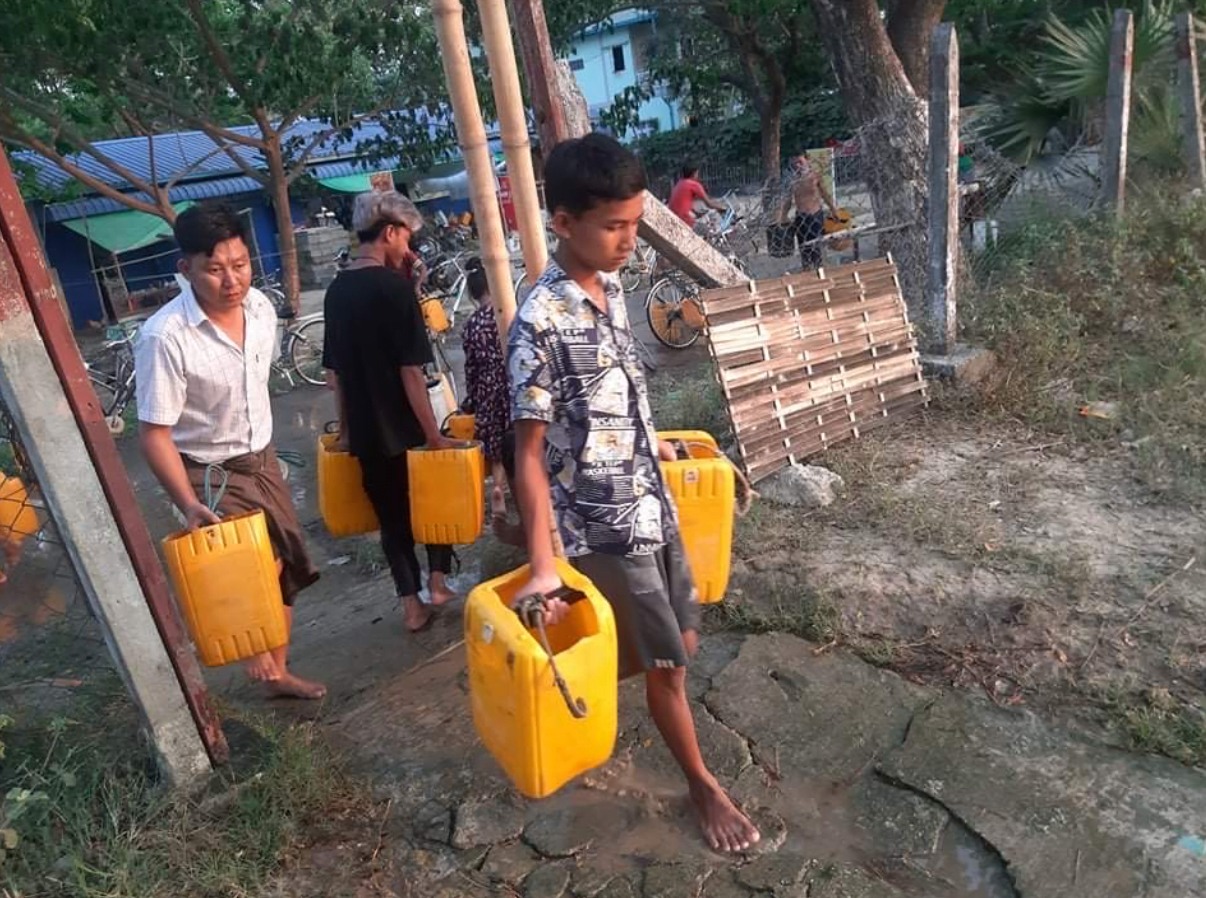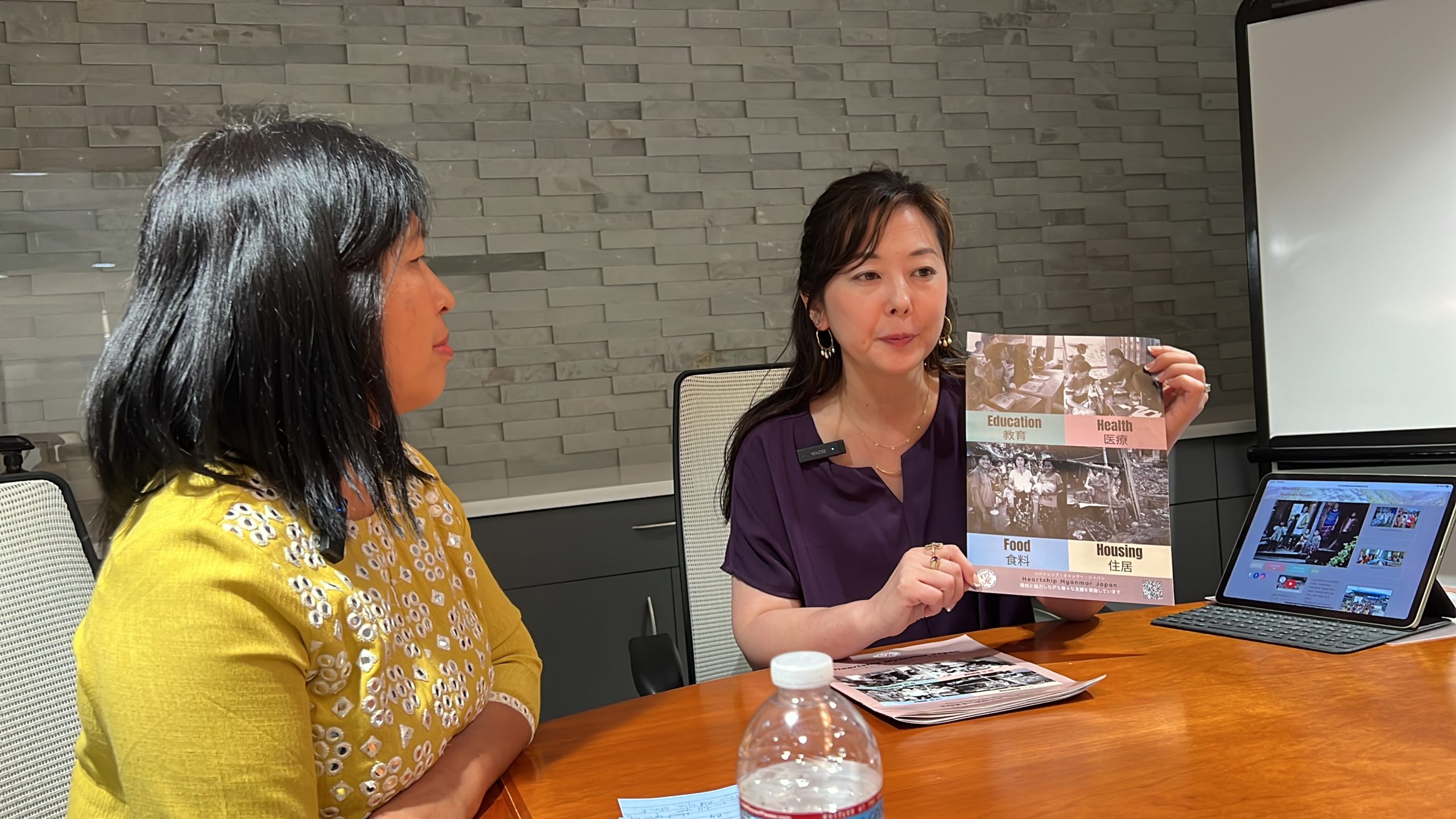日本に住む外国人の声を世界中に発信するメディアMy Eyes Tokyoに、HMJ代表ソウミのインタビューが掲載されました。これまで延べ1,000人をインタビューしてきたプロインタビュアー徳橋功さんが紡ぐソウミの物語です。My Eyes Tokyoのサイトからぜひご覧ください。こちらには英訳を掲載します。
An interview with HMJ founder Sawmi was featured in My Eyes Tokyo, a media outlet that provides the voices of foreigners living in Japan to the world. Here is Sawmi’s story told by professional interviewer Isao Tokuhashi who has interviewed over 1,000 people. Below is the English translation.
Interview & Composition: Isao Tokuhashi
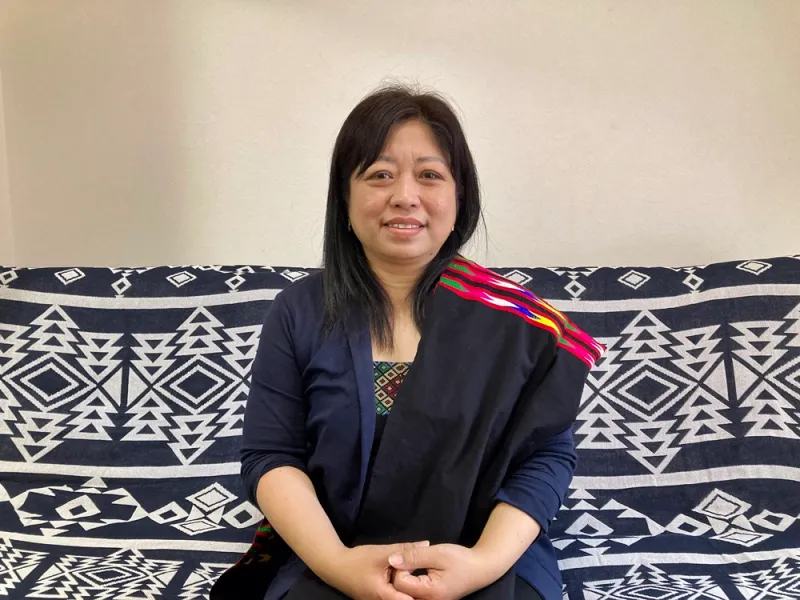
NPO founder and leader
For me, social contribution is the “water of life”.
It’s what has kept me alive.
As we enter the year 2023, the world is still far from peace. The relationship between Russia and Ukraine shows no signs of improvement even though it has been almost a year since the war started.
While many media outlets follow the current state and course of this war, there are clashes occuring in other parts of the world as well. One such place is Myanmar. Since the Myanmar military seized power through a coup d’etat in February 2021, nearly two years ago, civil resistance towards the government and its suppression by the military have continued.
Concerned about this situation, a Myanmar woman living in Japan has stood up. She and her friends founded Heartship Myanmar Japan (HMJ), an NGO that provides livelihood, education, and medical assistance to the poorest people of Myanmar.
She was introduced to us by Ms. Theingiwynn Kaneko, a Myanmar woman whom we have interviewed in the past. She introduced us to HMJ and its founder, Sawmi, who shared photos and materials about her activities and the current situation in Myanmar at the “Multicultural ONE FAMILY Festival” held in Tokyo last November (2022).
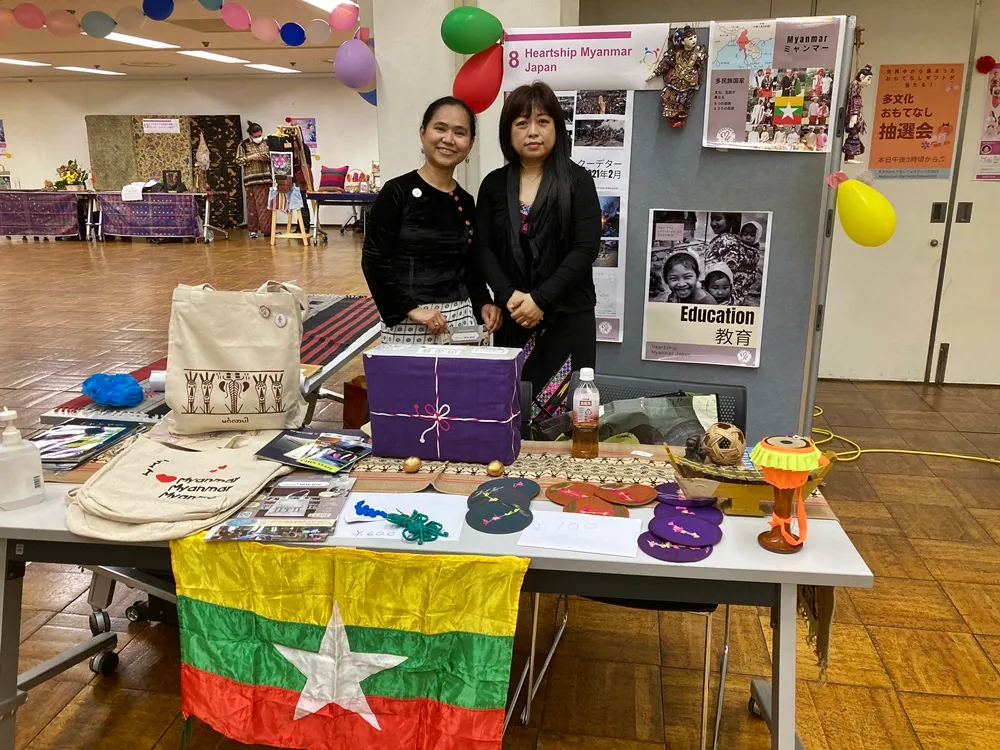
“Her hometown area was bombed by the military.” Ms. Theingiwynn said, and we were shocked. We requested an interview with Sawmi, with a strong feeling that we must tell the story of what is happening in this world, not just in Russia and Ukraine.
Helping my country through multinational NGO efforts
I am the founder of Heartship Myanmar Japan (HMJ), which was established in October 2021. We provide support for food, education, medical care, and infrastructure construction in Satawm village in Chin State, western Myanmar, where my parents and grandparents were born and raised, and also in the impoverished areas of the former capital city of Yangon.
In February 2021, a coup d’etat by the state military occurred in Myanmar. As I learned about the horrendous things happening from my family and friends through social media, the fact that there was nothing I could do was really hard. I cried and told my Japanese friend Tina about the devastation in my home country and my feelings, and asked for her help. I also called another friend Jacob Schere, an American photographer and English teacher who also lives in Japan, and the three of us launched HMJ.
I have lived in Japan with my Myanmar husband and two children since 2003. Even before the coup, I had always wanted to contribute to my home country. The starting point was the people I met in the village of Satawm.
Following my father’s footsteps
In 2007, my father and mother passed away one after the other. I was the sixth of ten children in my family, and I had a strong respect for my father, who had risen to the position of a member of the National Assembly despite being a Chin ethnic minority. When my father collapsed, I was told that he kept saying “Call Sawmi!” even though I was in Japan. He loved me very much.
After he passed away, I wanted to make up for his loss, so I decided to publish a book about him. In fact, when he was still alive, I had asked my father to write about his life. He had written about his parents and my grandparents, but he went to heaven without writing much about himself. So I had to reach out to family, relatives, and people who had worked with or known my father and ask them to write about him. I ended up publishing 3 books about him, but still could not find peace in my heart.
A few years later in 2011, our family decided to erect a stone monument in memory of my parents and to hold a ceremony to commemorate them. From Japan, I traveled to the village of Satawm, Chin State, where they were born and raised.
I had visited the village as a child, but remembered very little of it. It felt like I was there for the first time. What I saw and experienced there has been engraved deeply in my heart. Day after day, the villagers went through hard labor, fetching and carrying water for daily use from the top of the mountain. I tried to help them once, but it was very painful.
At the ceremony, I met the children of the village and their “feet” caught my attention. Most of them were not wearing shoes.
I had heard these stories of how they lived in Satawm from my parents many years ago, but I was struck by the fact that decades later, their living conditions had not changed at all.
Thanks to my grandfather, an educator, and my father, a member of parliament, I grew up in urban areas such as the capital of Chin State and Yangon. However, because we were an ethnic minority, the difference in language, culture, food habits and the impoverished lifestyle that my large family was forced to live, we had to endure a lot of bullying in Yangon. I grew up dreaming of studying hard, going to college, even to a university abroad, and becoming a career woman working for a large company.
In other words, I had little interest in philanthropic activities. This changed overnight after I met the children in my parents’ hometown. Unknowingly, I must have been influenced by my father who worked so hard for his country. Moreover, I could not help but feel guilty for not only growing up in urban Myanmar, but also living comfortably in Japan, one of the richest countries in the world. Thus, I came to think very strongly, “I want to help the country that raised me, my parents, and my grandparents.”
Expulsion and loss of trust
In 2012, the year after we erected the stone monuments for my parents, I launched my first NGO in Hualngo Land, which is the area where my grandparents and parents grew up. The main industry in that area is agriculture, but even today, farming is done mostly by hand. They don’t have access to any machinery or even cattle. I established the Hualngo Land Development Organization (HLDO) with the help of Jacob, and created a system where we would invite a student from Myanmar to study the latest agricultural technology in Japan and take it back to their hometown.
At that time, I used to teach English at a local elementary school in Japan but I quit that job to dedicate myself to the cause, and we actually had tangible results. Two young people from Hualngo Land came to study at an agricultural college in Ibaraki Prefecture. HLDO became so successful that it was absorbed into a worldwide branch of another NGO. However, because I was so far away in Japan, HLDO decided that they didn’t need me anymore and essentially kicked me out. This was devastating in itself, but furthermore, I could no longer report back to friends who personally trusted me and donated to HLDO on how their money was being used. I experienced mental anguish, because I know I had let people down and they probably lost trust in me.
Nevertheless, my desire to contribute to my hometown and to help the youth and children did not disappear. Tina, who was already a “mom friend,” and I approached local soccer teams that our children belonged to and started a project to donate used soccer wear and soccer goods to the children of Hualngo Land. The area is very hard to access because it’s in the mountains and there are no paved roads, but I personally delivered the soccer equipment directly several times. Sadly, with the COVID outbreak at the end of 2019 and the coup d’etat by the Myanmar military which followed in February 2021, we have not been able to continue this.
Starting over with “rice”
“Even if you can’t actually go to the villages, you can still send money, right?” – Encouraged by Tina and Jacob’s words, I tried sending donation money to my family in Yangon. Tina suggested that if I could get reports from the local people on how they were using the money, we might be able to get donations from more people. My original goal for NGO activities was to support young people and children and their bright future, but the coup had turned upside down the lives of so many people. Many are struggling just to get food on the table, so I asked my family to use the money to buy rice and distribute it to people living in impoverished areas. That first trial rice distribution was successfully accomplished.
We officially launched HMJ in October 2021. My contacts in Myanmar tell us what the people need. Together we come up with a plan and estimate, then, we send donation money from Japan. The local team will conduct the plan accordingly and send us photos and financial reports. We try to keep in close contact with each other.
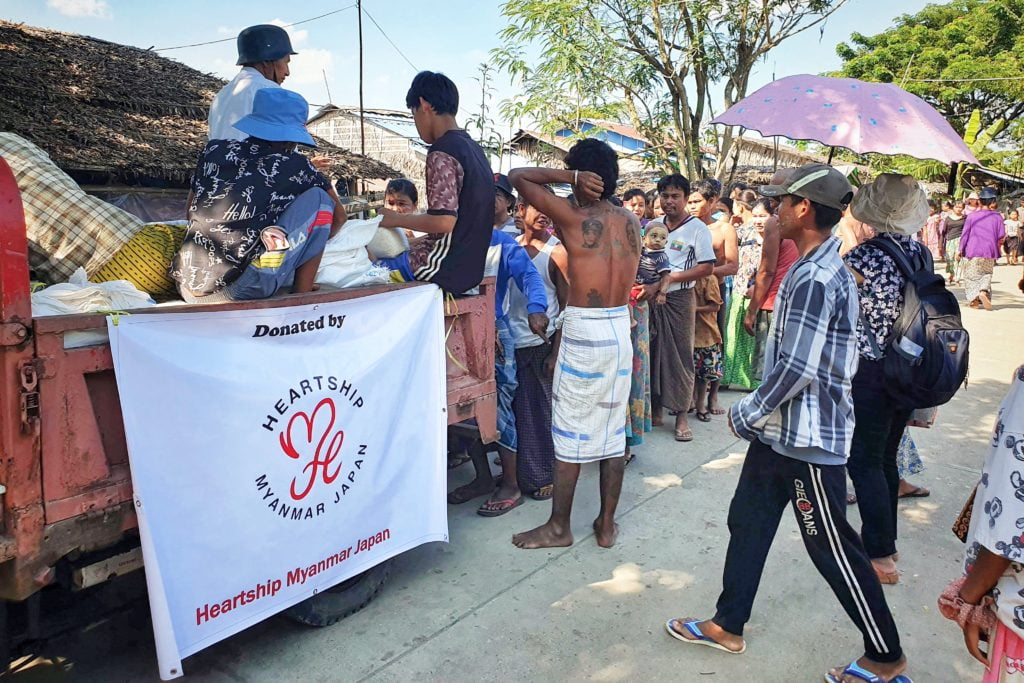
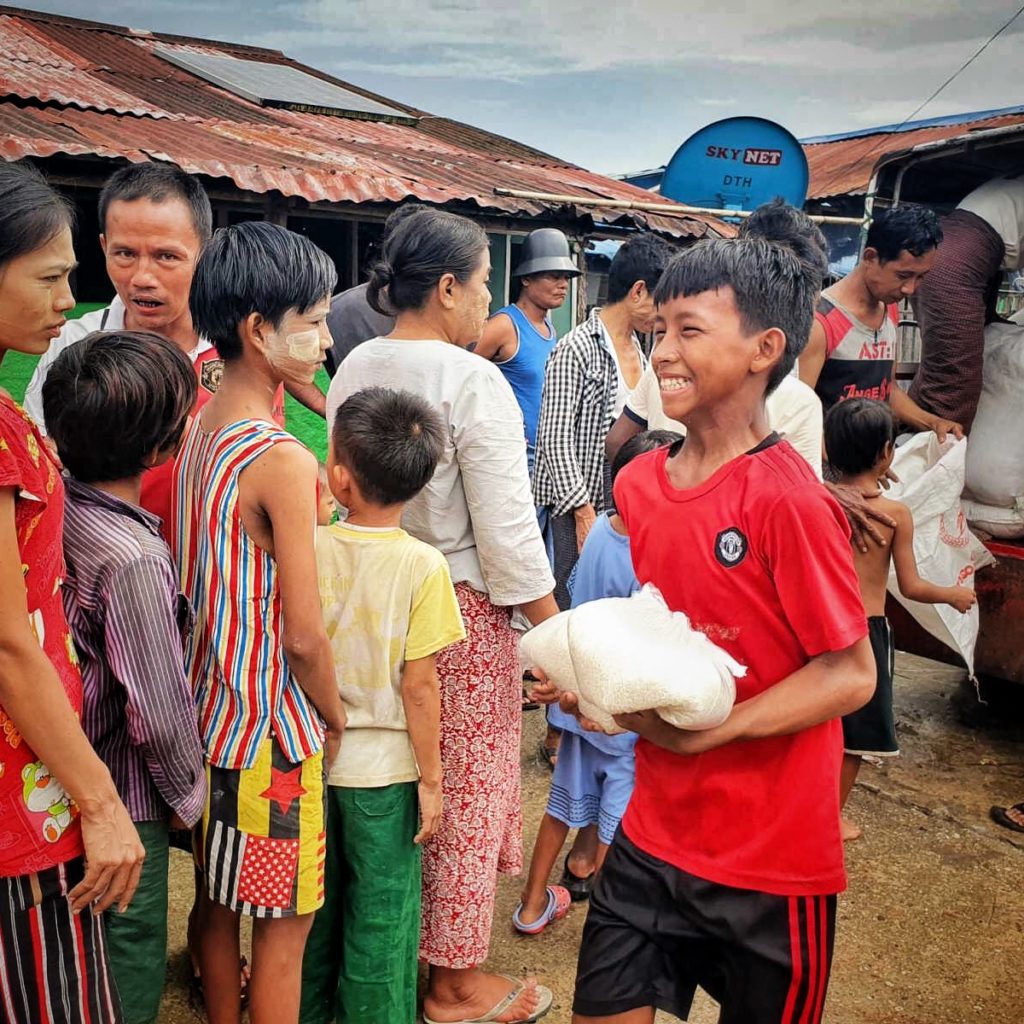
Rice distribution to the impoverished “Dalah area” in Yangon. With cooperation from the local pastor, rice has been sent to this district four times (as of Aug 2022).
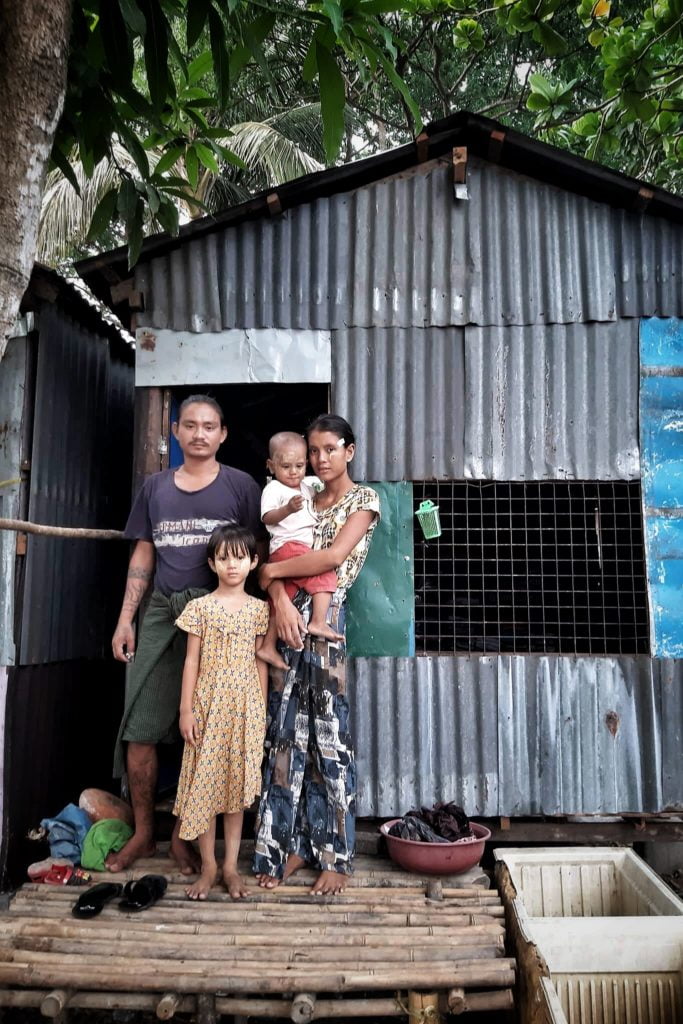
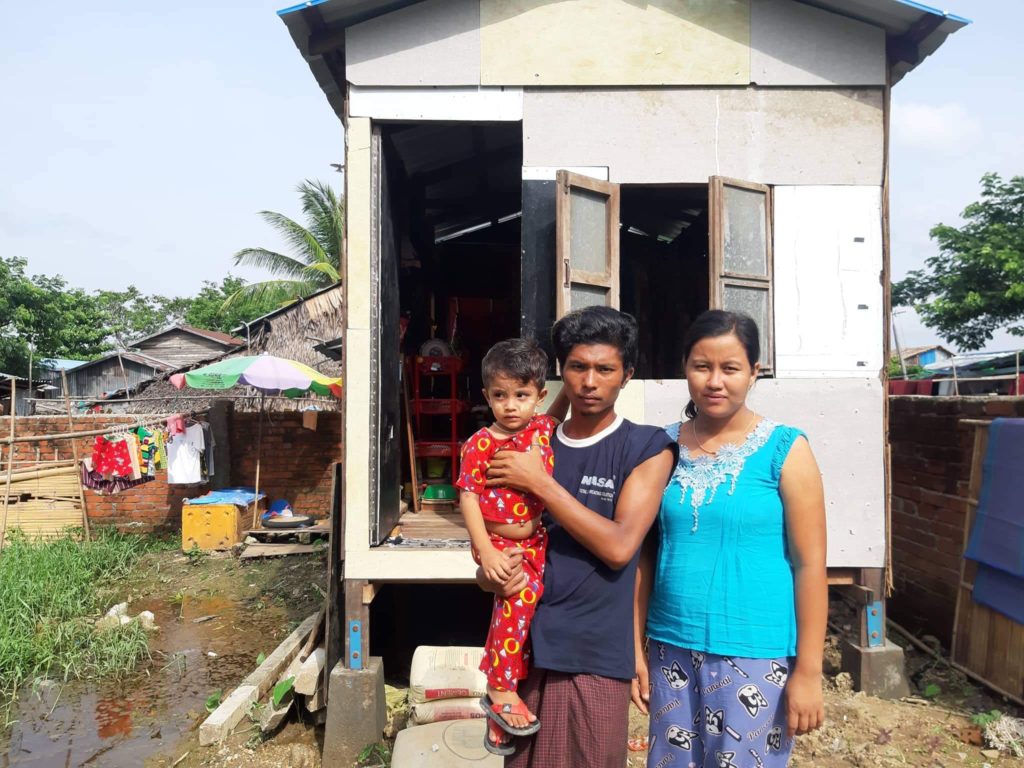
The Myanmar military destroyed the homes of people living in the Dalah area calling it illegal occupation. HMJ sent funds to build new houses for four families who had no relatives and no one to rely on financially.
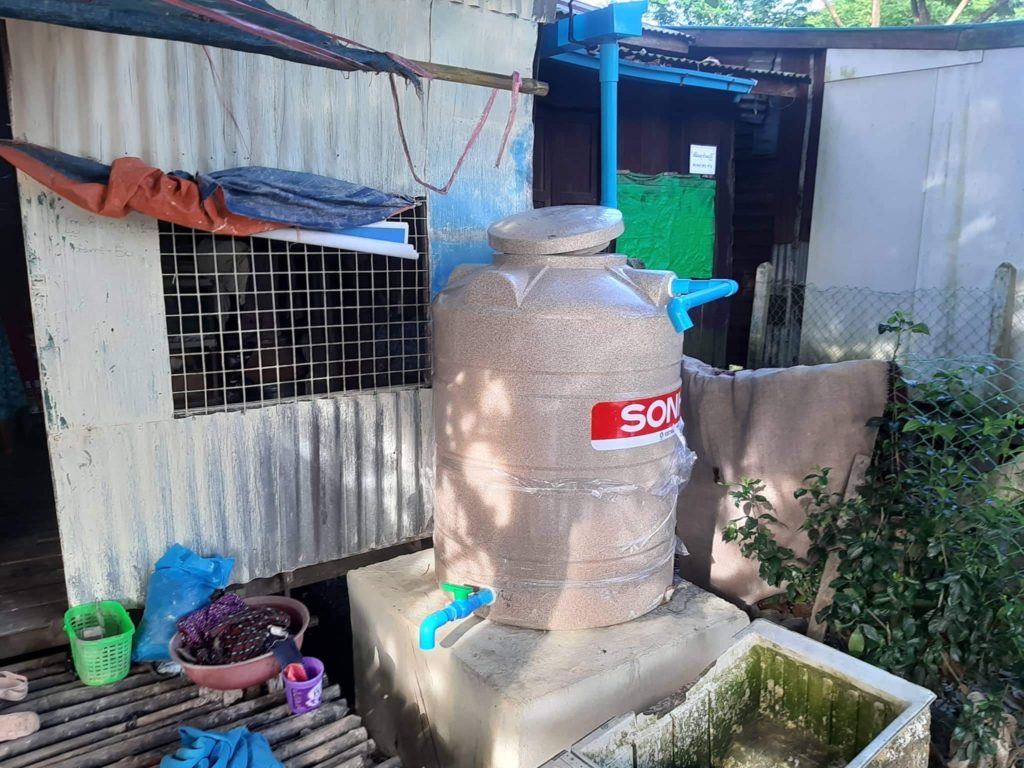
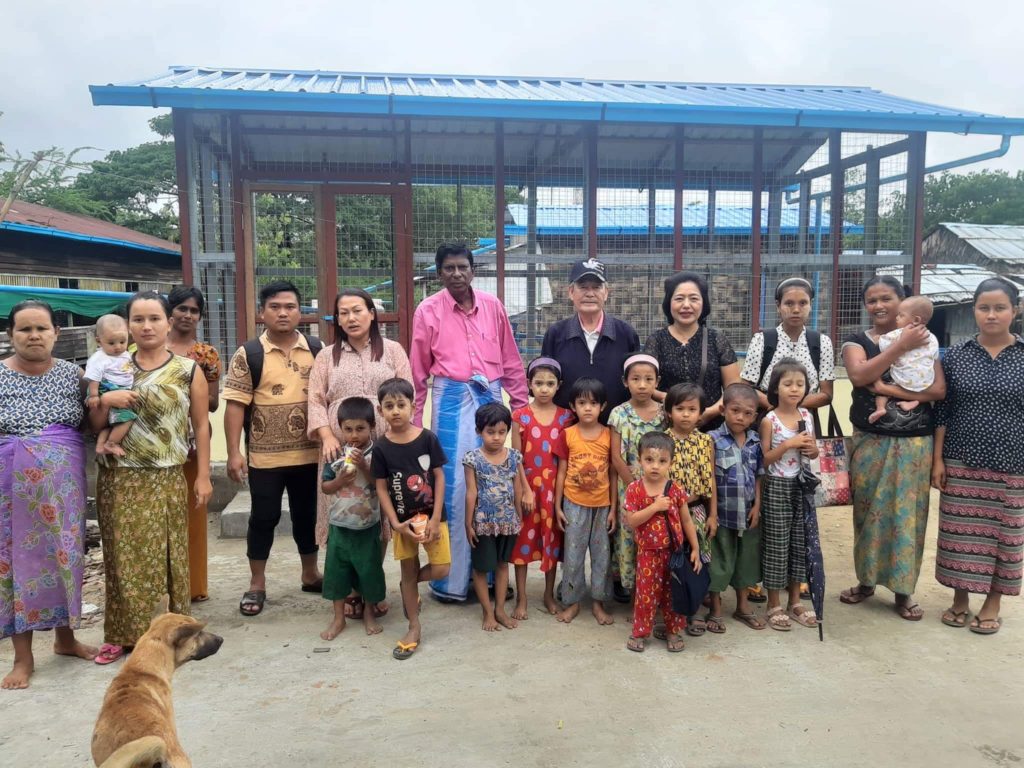
HMJ’s water project cleaned an abandoned water tank in the Dalah area, where there is no running water. A security house was built around the water tank so that the water could be managed.
I will not stop
Right now, we are mainly supporting the village of Satawm, my grandparents’ and parents’ hometown, and the Dalah district of Yangon, but I hope to extend our assistance to the entire Chin State. If that is too difficult, I would like to support all 58 villages in Hualngo Land.
Even if the situation in our home country changes, we will continue to work in cooperation with locally based NGOs. We are especially interested in education for the children of Chin State.
Although they are poor, they are really cute, bright, and very intelligent. If we can create an environment where they can study, their lives will change. In addition to building schools, I want to create a pathway for them to receive higher education such as universities and vocational schools in Yangon. Seeing how my children are being educated in Japan, I also want to use sports as an opportunity for them to learn about teamwork, honesty and discipline, which is Japan’s forte. If we do this, I am sure they will grow up to be great human beings.
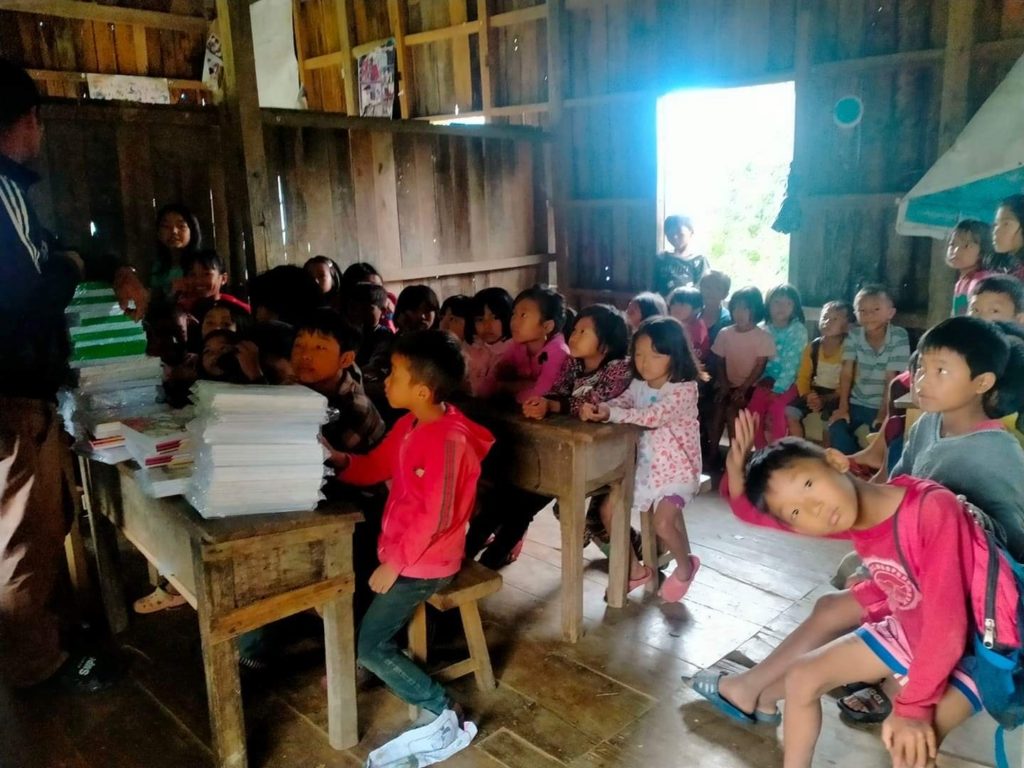
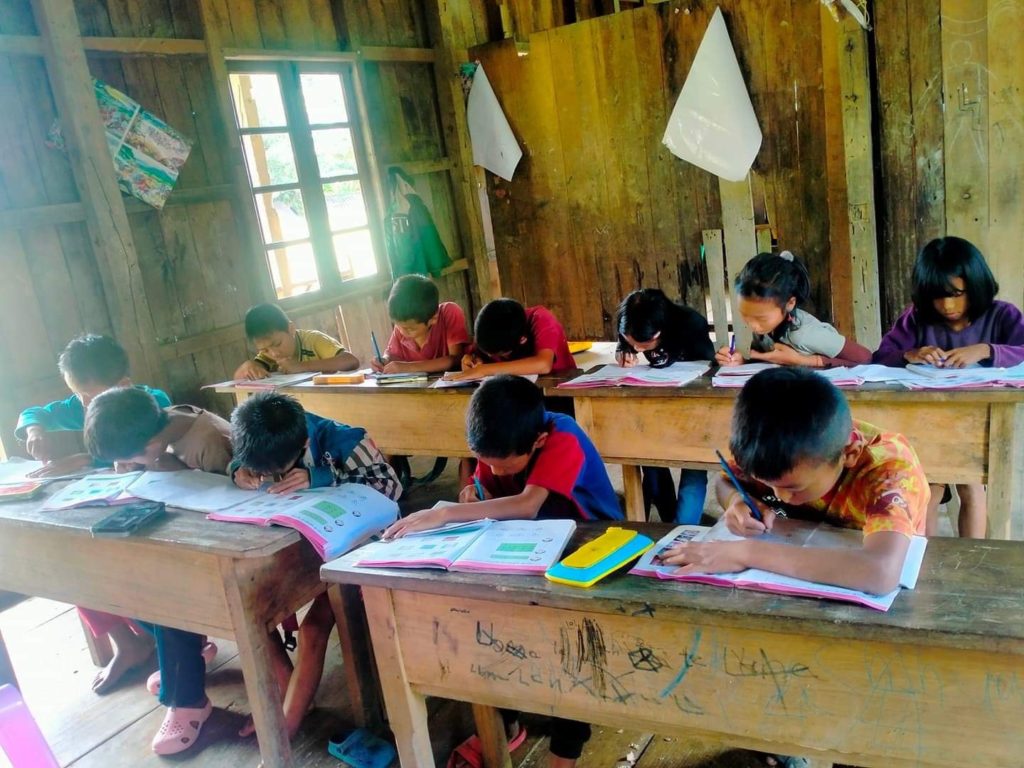
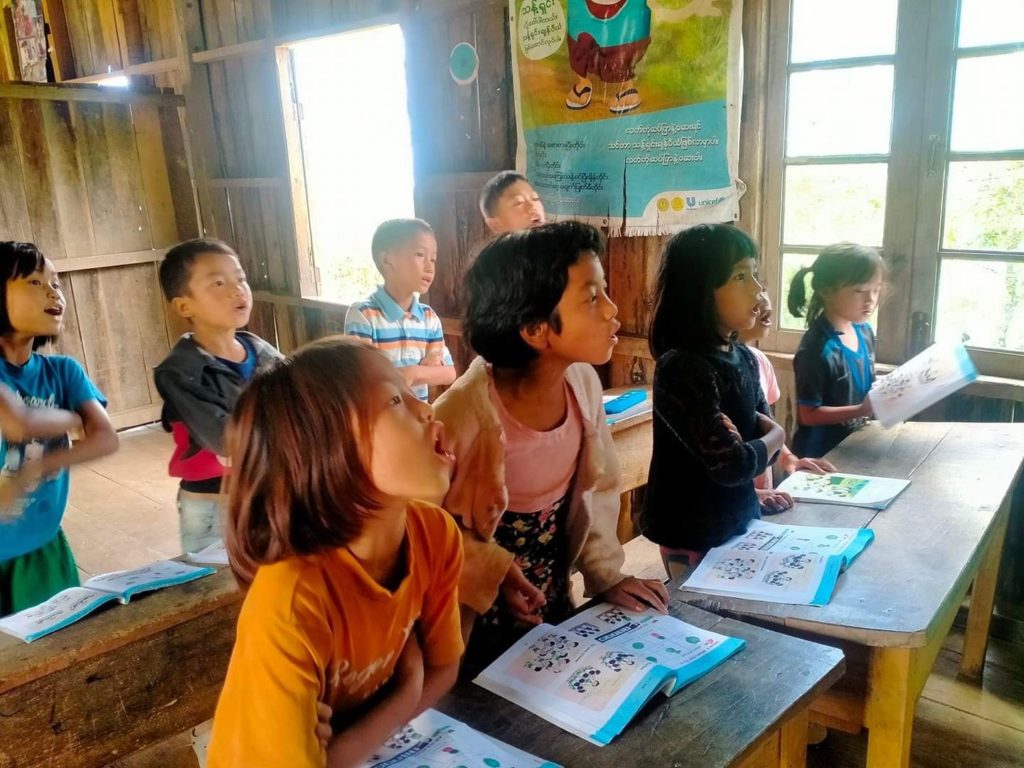
Educational support requested by the Hualungoram People’s Organization (HPO), a local NGO. HMJ donated half a year’s salary for two teachers, textbooks, and stationery, and the school reopened for the first time in two years. However, it has been closed due to air raids in November 2022.
We also want to work on providing local medical care. There are no hospitals in Satawm village or Hualngo Land, and people who are sick or injured have to cross the border into India. A woman pastor of a church with whom I used to be very close, died on her way to a hospital in India. She had fallen from a high place while working and subsequently developed pain in her abdomen and swelling in her legs. Since there was no doctor or medicine in the village, they decided to take her to a hospital in India. There was no car so several men carried her in their arms, but she died before reaching the hospital.
Hearing this was so painful that I could not stop crying. This experience has led me to start supporting a mobile clinic run by HPO this January.
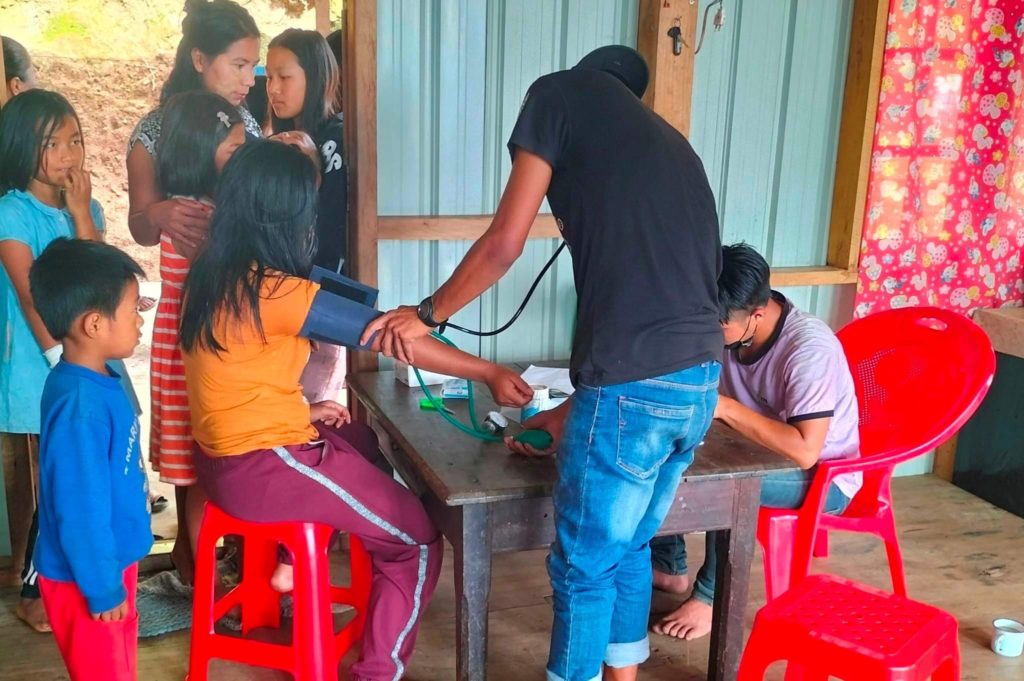
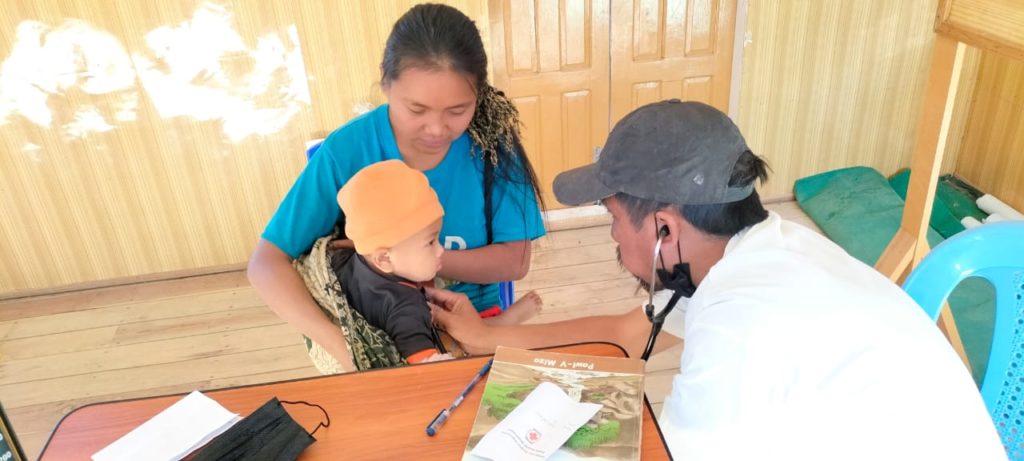
What I do is the “Water of Life”
For me, social contribution activities are life itself. If I hadn’t started the NGO, I might have died. If my hometown is in a difficult situation and I cannot do anything about it, there is nothing more painful.
People need to drink water when they are thirsty. For me, running an NGO is the same as drinking water. It’s what has kept me alive until now. I feel that my life has meaning only when I can contribute to society. This belief may have been given to me by my late father. He’s telling me to do this. I think the reason why my first NGO was able to achieve the results it did was because my father was liked and trusted by so many people. Publishing his books was not enough, but through NGO activities, I have finally been able to regain peace of mind.
What does Japan mean to you?
It is a place where I feel safe.
I used to yearn to go to foreign countries, but Japan was not among them. I wanted to go to universities in Singapore or the United States. But I ended up coming to Japan because I met my husband who was captain of a ship owned by a Japanese shipping company. He and I had to get married abroad for various reasons, and my brother and relatives were already living in Japan.
Of course, it was hard to give birth and raise two children in a foreign country while not understanding any Japanese. My older son was also teased for his skin color and other reasons when he started elementary school. But now I can say with confidence that I am glad I came to Japan! The Japanese people have been so nice. When my older son joined the local soccer team, he was saved by his teammates who did not care about his skin color. By the way, I don’t think the elementary school classmates who made fun of him were ill-minded. They were just immature and lacked knowledge .
My younger son who was born premature and subsequently spent a year and a half in the hospital for asthma, was able to receive treatment at almost zero medical cost. If we had not lived in Japan, I do not know what would have happened to his life. That is why I always say to my two children, “Let’s do what we can do for Japan and for Myanmar.”
I myself am unable to return to my home country for various reasons. I hope the day will come when we can go to Myanmar and see what’s going on and hear directly from the people. I also hope that people from Myanmar can come to Japan to study. That would be my ideal world.
For this to come true, I really wish that peace will return to my home country as soon as possible.
